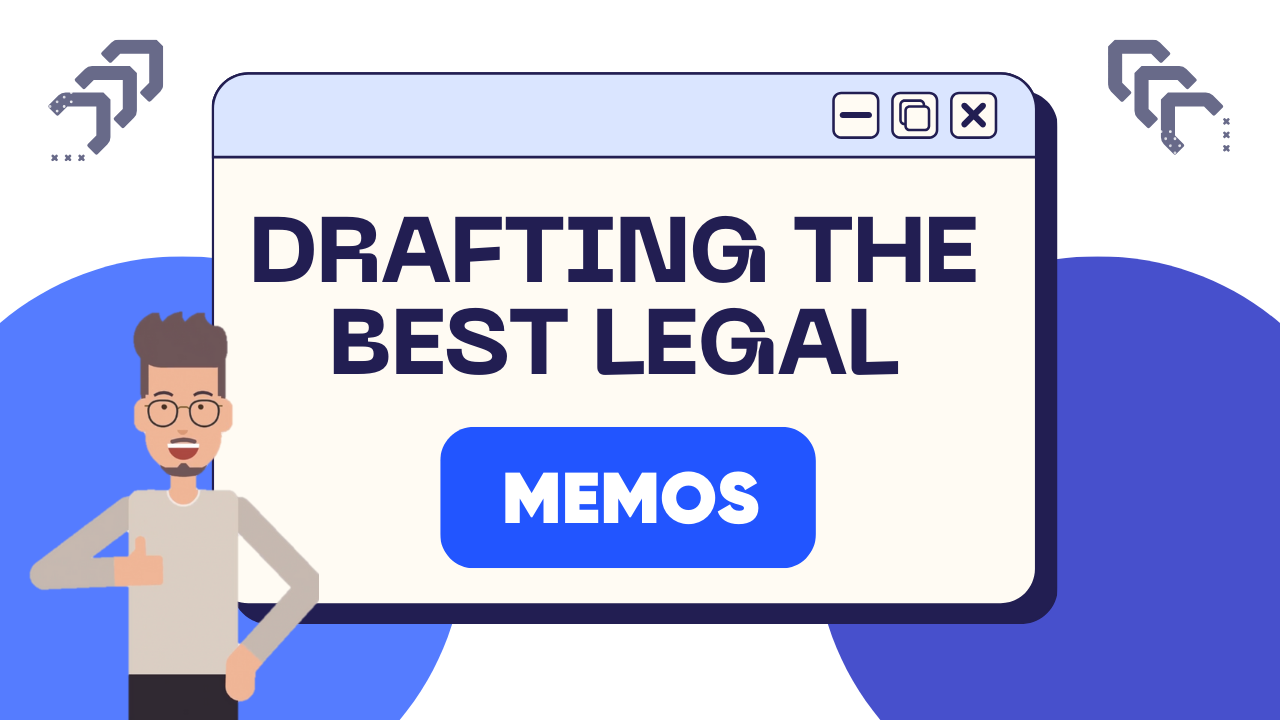
Learn to navigate complex legal issues and communicate effectively with clients and colleagues, ensuring your memos are both informative and decisive.
Joe Regalia
When clients or colleagues ask you to write a memo, it’s usually because they face a particularly complex or important decision and want to ensure they’ve dug deep into the nuance. That is because, these days, clients often prefer to jump straight into the motions, demand letters, or other more consequential documents needed to move a case forward. So if you are writing a memo, chances are, it matters.
The legal memorandum is a professional opinion. It examines a legal issue, identifies governing laws, applies those laws to the facts, and concludes with advice or recommendations. Whether it’s considering the enforceability of a non-compete clause or assessing a potential merger’s impact on market competition, you will need to distill the issues that matter most and give readers what they need as efficiently as possible.
Traditional memos contain a header section, a question presented and brief answer—and then the typical components of any legal analysis, including a fact section, a discussion, and a conclusion.
Before we get to some tips for making your memos shine, let’s consider those first two components, which are unique to memos.
The header section is straightforward. This is where you note who you’re writing the memo to, who it’s from (if you’re writing it, that would be you), the date you submitted the memo, and the memo’s topic.
To: Susie ParkNext, take a moment to craft the “regarding” line. Give readers enough information about the matter and particular issues covered in the memo so that they can easily decide whether to read it without go further than the header.
This also extends to the file name you save the memo with. Ensure you follow your organization’s conventions and name the file something descriptive future team members will be able to find.
The question presented and brief answer is a more formal, traditional convention for sharing your memo’s executive summary—what lawyers often call an introduction in other documents like motions.
The question presented offers readers the specific legal questions your memo tackles. The brief answer shares a summary of the key takeaways from your document—the answers to the questions presented.

At the outset, take time to understand precisely why you are writing the memo. Whenever you get a memo assignment, ask lots of questions about what is expected. But with memos, this step is particularly important.
Ask questions likeBefore you begin drafting, take a moment to contemplate your audience. A senior attorney or partner in your firm will look for depth, sophistication, and nuance in your arguments. They may already be familiar with the basic legal concepts and seek your insight into how those concepts apply to the specific facts of the case.
Conversely, a client without a legal background needs a document stripped of jargon, couched in plain language that enlightens without overwhelming. You’ll need to transform the complex into the comprehensible without sacrificing the subtlety and strength of your legal analysis.
distill the takeawaysDistilling your memo’s takeaway in a useful introduction (traditionally referred to as the brief answer) is just as important as distilling any other legal document at the start. So start with a short, distilled summary. But because memos are meant to predict outcomes and not just persuade, there is more room to highlight practical points in your memo’s introduction:
In every memo you send, think about whether there are any ways to add value to the task you were given. If it’s a research assignment, are there some other resources or secondary sources you can attach for your reader to refer to? A few helpful cases?
Then offer some concrete next steps that you can take to further help your reader—don’t just do what you’re told and leave it at that. Think specifics, not an abstract “if I can do anything else let me know.” Offer to conduct specific follow-up research, track down an expert to get a second opinion—anything to show that you are thinking about future steps and the bigger picture.
Read through the following memo written by an attorney. Notice how we don’t understand the key specifics that matter—the takeaways—until we’ve read the entire thing. Also notice there is little organization, poor sentence structure, and tangential details that don’t serve the writer’s goals.
RE: “That Research You Asked For. ”
To determine alter ego liability, courts apply the law of the forum state. In re Schwarzkopf, 626 F.3d 1032, 1037-38 (9th Cir. 2010). The alter ego doctrine is an exception to each and every state’s “general rule recognizing corporate independence” and said rule is critical. Truck Ins. Exch. v. Palmer J. Swanson, Inc., 189 P.3d 656, 660 (2008) (quotation omitted). “To establish alter ego liability: (1) The corporation must be influenced and governed by the person asserted to be its alter ego[;] (2) [t]here must be such unity of interest and ownership that one is inseparable from the other; and (3) [t]he facts must be such that adherence to the fiction of separate entity would, under the circumstances, sanction a fraud or promote injustice.”
Here it’s clear that the relevant party in the instant case, Mr. Summers, would not qualify under said alter ego doctrine. There is no suggestion in the evidence that there was an improper, illegal, or otherwise objectionable influence on Mr. Summers’ part. Unit of interest is not present as well. The ownership interests in this case reside with Mr. Summers’ wife, Terry Summers. Therefore, these elements are unlikely to be met here. Furthermore, there is no evidence of fraud or injustice. Mr. Summers was CEO of the said company in question for several years and appears to have operated this company to the best of his abilities. No evidence suggests that he did anything illicit with the corporate form.
Now look at the difference it makes when we apply the principles we’ve covered in prior Write.law posts: Orienting readers to what matters, distilling takeaways, simple and specific sentence structures, familiar words, and cutting any tangential details readers don’t need. I’m just including some relevant snippets of the revised memo, so you can compare.
RE: Alter ego analysis in the Summers case
You asked me to pull together a quick analysis about whether our client Mr. Summers is likely to be held the alter ego of his company in the Ninth Circuit—so that a recent debt enforced against his company might be enforced against him personally as well.
Brief Answer:
Mr. Summers is not likely to be an alter ego here. Alter ego liability first requires evidence that Mr. Summers influenced his company. Influence means that he made significant financial or operations decisions at least once a month. And Mr. Summers had no involvement with the company during the relevant period save occasionally receiving reports from the board.
Even if he met that element, Mr. Summers would still needed to have taken some fraudulent act. Courts require real fraud in this state, which means that Mr. Summers lied to someone outside of the company, knew they would rely on his lie—and then that Mr. Summers personally benefited from the lie. No evidence suggests Mr. Summers has even communicated with outside companies, clients, or the public about the his company. So unless we receive more information, Mr. Summers is likely safe from alter-ego liability.
Background Facts [omitted for brevity]
Discussion
Courts apply the forum state’s law when determining alter ego liability. In re Schwarzkopf, 626 F.3d 1032, 1037-38 (9th Cir. 2010). Courts require evidence of three things: (1) the corporation must be influenced by the person and (2) failing to recognize alter ego liability would “sanction a fraud or promote injustice.”
Courts require that someone influenced a company by making regular financial or operations decisions before attaching alter-ego liability to them—and Mr. Summers made no decisions here.
I’m attaching the two most helpful cases on alter ego liability in case you would like to review them. If it’s ok with you, I will reach out to the client and make sure we've received all the relevant evidence.